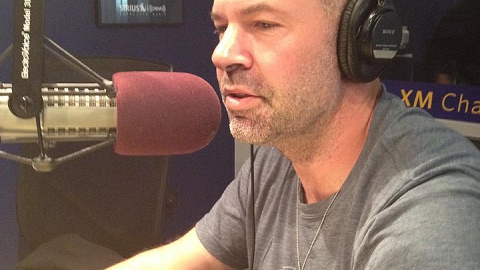- By Travis Bray
- Posted August 22, 2016
Kicking and Screaming
Dealing with test results, as one would imagine, is solely and sorely dependent on the results. Writing about what’s it’s like for a doctor to say that there’s nothing wrong would produce a very short blog post. It would basically go like this: Doctor: “You’re fine… all clear.” Me: “Cool… see you next year, Doc.” Being sick,…
- By Deepti Babu, MS, CGC
- Posted August 17, 2016
The Buddy System: It works for Hereditary Cancer, Too
We’ve covered a lot of territory with this blog, so thank you for coming on the ride with us. Theresa Smith talked about her experience of sharing her genetic test results with her family, and we offered a genetic counselor’s perspective on the same idea. This time, we’re focusing more on you – we’re exploring the idea of building a support…
- By Kory Jasperson, MS,CGC
- Posted August 15, 2016
Help Researchers Help You
Participating in research is one of the most powerful ways patients can make a difference in advancing scientific discovery. This is especially true for individuals who have a rare disease, such as a hereditary cancer syndrome. It can be very rewarding to know that you might be able to contribute to the advancement of science. However, research…
- By Carin Espenschied
- Posted August 3, 2016
How Laws Protect Genetic Information
There are many different things to consider when deciding whether to have genetic testing. In addition to the impact of the test results on your physical and emotional health and that of your family members (more on that here), you should also consider your insurance coverage and the possibility of discrimination. When I met with patients as…
- By Georgia Hurst
- Posted August 1, 2016
Possible and Unexpected Outcomes of Genetic Testing- Benefits of Having a Knowledgeable Healthcare Provider
In my opinion, as an advocate for those with hereditary cancer syndromes, undergoing genetic testing without the guidance of a certified genetic counselor ge·net·ic coun·sel·or A healthcare professional with specialized graduate training in the areas of medical genetics and counseling. Genetic counselors provide information and support to…
- By Carin Espenschied
- Posted July 27, 2016
A Few Words on Colectomies
As a genetic counselor, I cannot go into a lot of detail regarding what it’s like to have a colectomy, but I want to provide a little bit of background to Travis’ fantastic and very frank post, this week. A colectomy is a surgery to remove the large intestine, or colon. A colectomy may be used as part of the treatment for someone who has colorectal…
- By Travis Bray
- Posted July 25, 2016
Some Things Change...Some Don't
As I write this, I am aboard a plane returning home from Baltimore following a meeting with the Food and Drug Administration. Joined by a panel of experts in hereditary colon cancer, including Steve Erdman, MD (Pediatric gastroenterologist; The Ohio State University College of Medicine), Heather Hampel, MS, CGC (Genetic counselor; The Ohio State…
- By Deepti Babu, MS, CGC
- Posted July 20, 2016
It's Complicated: Sharing Your Genetic Test Results
I feel funny writing about sharing genetic test results with family when I’ve never done it myself, but don’t let that stop you from reading… I’ll draw upon my years in the clinic as a genetic counselor, speaking to many families about this topic, and offer thoughts from my side of the table. I have seen that it’s complicated for some…
- By David Dubin
- Posted July 18, 2016
Sharing The Story With the World, Starting With Family
People often have a Utopian set of expectations whenever family reunions take place. They envision a Rockwell painting where kids behave and adults get along. In reality, you’re getting together with family you may or may not have seen in months, if not longer, and the actual reunion may not meet these expectations. Often, one or more people…
- By Dr. Dennis J Ahnen
- Posted July 6, 2016
Colonoscopy: What to Expect, Plus a Few Tips
Colonoscopy is central to the care plan for families with hereditary colorectal cancer (CRC) syndromes, as Georgia Hurst mentioned in her earlier post. Colonoscopic screening is the major means for prevention and early detection of CRC in this setting. It is worth highlighting what you can and should expect when getting a colonoscopy. It is…









